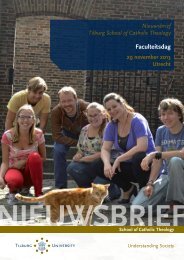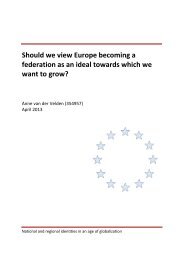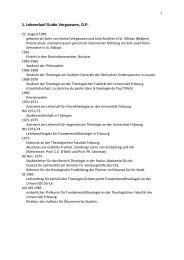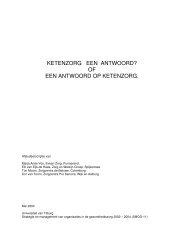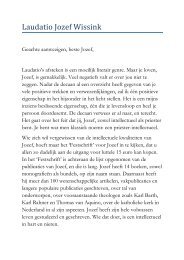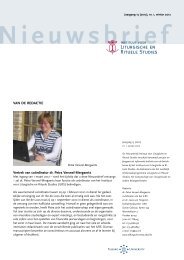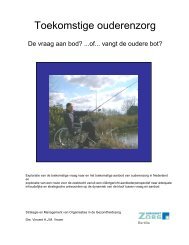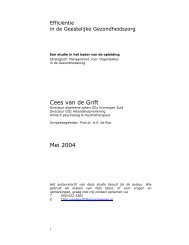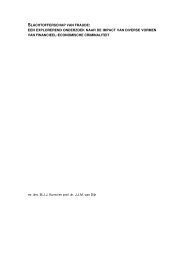Here - Tilburg University
Here - Tilburg University
Here - Tilburg University
You also want an ePaper? Increase the reach of your titles
YUMPU automatically turns print PDFs into web optimized ePapers that Google loves.
Presenter<br />
Züll, Cornelia & Scholz, Evi; Gesis – Leibniz Institute for the Social Sciences,<br />
Germany<br />
Authors<br />
Cornelia Züll & Evi Scholz<br />
Title<br />
Item Nonresponse in Open Ended Questions: Empirical Analyses of Respondents’<br />
Answering Behaviour on the Meaning of Left and Right.<br />
Abstract<br />
One of the main topics of the German Social Survey (ALLBUS) in 2008<br />
was “political attitudes and political participation”. As in many other political<br />
science based surveys the self-placement on a left-right scale was asked as an<br />
indicator for ideological self-identification. Though left-right self-placement is<br />
one of the most frequently used measures in empirical political science research,<br />
the respondents' associations with “left” and “right” are queried only rarely in<br />
the last decades of survey research. ALLBUS 2008 included two open-ended<br />
questions directly following the left-right scale itself and thus allows to gain<br />
important insights in how respondents use the left-right scale: “What do you<br />
mean by left/right”. However, item non-response on these open-ended questions<br />
has to be well considered before the associations with “left” and “right” are<br />
analyzed and results are interpreted. About 20% of the respondents answered<br />
“don’t know” or did not answer the question at all. Such a considerable amount<br />
of non-response might have effects on data quality and, hence, on the<br />
interpretation of the results. We assume that respondents answering “don’t<br />
know” or those who did not give any answer would have problems with the self-<br />
placement on the left-right scale. We further assume that demographic and<br />
political indicators, i.e. education – both formally and politically – or political<br />
interest, influence the non-response behavior. We will present the results of our<br />
investigation of item non-response on the questions about associations with<br />
left/right and discuss quality problems related to the validity of the left-right<br />
scale itself.




